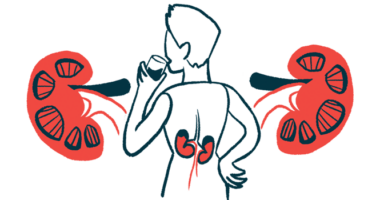COVID-19 Vaccination Linked to Onset of aHUS in Three Dutch Patients
All three had same pathogenic mutation in gene that produces C3 protein

Vaccination against COVID-19 was linked to the onset or recurrence of atypical hemolytic uremic syndrome (aHUS) in three Dutch patients in a recent case report.
Researchers didn’t find any additional cases wherein a vaccination could be tied to aHUS relapse in a retrospective analysis of 41 other aHUS patients seen at their clinic.
“We identified COVID-19 vaccination as a potential trigger for aHUS onset or relapse in pediatric and adult patients,” the researchers wrote, noting that because “the risk of aHUS recurrence after COVID-19 vaccination appears to be acceptable” a COVID-19 vaccination was advised for aHUS patients since it reduces the risk of being infected by the virus.
The study, “COVID-19 vaccination and Atypical hemolytic uremic syndrome,” was published in Frontiers in Immunology.
aHUS is a severe form of thrombotic microangiopathy (TMA) wherein blood clots form in small blood vessels, blocking blood flow to organs, to which the kidneys are particularly susceptible.
The condition is caused by an over-activation of the complement system, a part of the immune system that drives inflammation and blood clotting.
While patients usually have genetic mutations that predispose them to develop aHUS, external triggers such as infections, surgeries, or pregnancy are typically needed for it to manifest.
As the COVID-19 pandemic unfolded, reports of the onset of aHUS or relapses after infection emerged, with scientists recognizing that SARS-COV-2 — the virus that causes COVID-19 infection — was able to activate the complement system.
Once COVID-19 vaccines became available, a few similar reports emerged, identifying the vaccine as a potential trigger, albeit a rare one, of aHUS symptoms.
“Yet to date it is unknown to what degree vaccination against COVID-19 could trigger aHUS in pediatric and adult patients,” said the researchers, who described the cases of three Dutch patients — two adults and a child — with new or relapsing aHUS that emerged after vaccination against COVID-19 at the Radboud University Medical Center, the Netherlands.
Three cases of onset, relapse linked to COVID-19 vaccination
The adults, females ages 26 and 58, were given either their first or second shot of the AstraZeneca vaccine, while the child, a boy of 12, was given his second shot of the Pfizer/BioNTech vaccine.
All three had the same disease-causing (pathogenic) mutation in the gene responsible for producing C3, a complement protein.
Symptoms of aHUS, such as fever, dark urine, nausea, and vomiting, emerged one to three days after the vaccine, and an aHUS diagnosis was reached from 2–15 days after the injection.
All three had clear signs of TMA, acute kidney injury, complement activation in blood tests. An underlying infection as the cause of aHUS was ruled out in each case.
After diagnosis, all three began Soliris (eculizumab). One of the adults and the boy were able to stop Soliris within five weeks and achieved full recovery of their kidney function.
The other adult remained on Soliris for 12 weeks and required 16 days of dialysis due to ongoing kidney dysfunction. All three had stable kidney function a median of 28 weeks (about seven months) after stopping Soliris.
Two other cases of aHUS relapse noted
The researchers noted that two other patients with the same aHUS-causing mutation were treated with Soliris due to aHUS relapse after vaccination. But they called the evidence for a relapse as well as its temporal relationship to the vaccine “dubious” in both cases, so neither was considered definitive.
“We could only determine a temporal relationship between COVID-19 vaccination and aHUS,” the researchers wrote, noting the vaccination as a definitive cause couldn’t be determined.
They also retrospectively reviewed lab results from 41 aHUS patients after a COVID-19 vaccination, totaling 104 shots. These included 29 people who were not receiving complement-inhibiting therapy and 12 who were.
Overall, signs of TMA were observed in only one person after a vaccine and other lab abnormalities were seen in seven others. Ultimately, a COVID-19 vaccination was not linked to an aHUS relapse in any of them.
The study findings highlight “the importance of clear patient instruction and routine (laboratory) monitoring after COVID-19 vaccination,” the researchers wrote, noting patients should be monitored for all subsequent vaccine shots even if they didn’t have complications after their first one.
The researchers advised the continued use of COVID-19 vaccines to prevent severe infection, noting the risk remains low.







